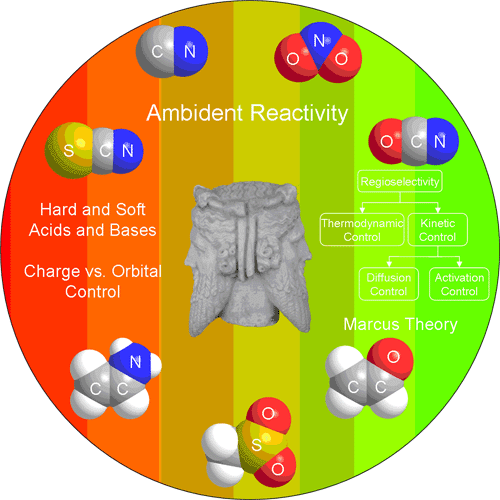A Farewell to the HSAB Treatment of Ambident Reactivity
Angew. Chem. Int. Ed., 2011, published on
Angew. Chem.
The concept of Hard and Soft Acids and Bases (HSAB) proved to be useful for rationalizing stability constants of metal complexes. Its application to organic reactions, particularly ambident reactivity, has led to exotic blossoms, however. By attempting to rationalize all observed regioselectivities by favorable soft-soft and hard-hard as well as unfavorable hard-soft interactions, older treatments of ambident reactivity, which correctly differentiated between thermodynamic and kinetic control as well as between different coordination states of ionic substrates, have been replaced. By ignoring conflicting experimental results and even referring to non-existing experimental data, the HSAB treatment of ambident reactivity has gained undeserved popularity. In this essay we demonstrate that the HSAB as well as the related Klopman-Salem model do not even correctly predict the behavior of the prototypes of ambident nucleophiles and, therefore, are rather misleading than useful guides. An alternative treatment of ambident reactivity based on Marcus theory will be presented.



